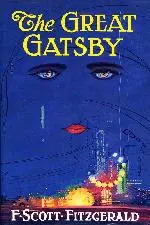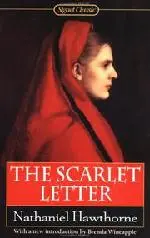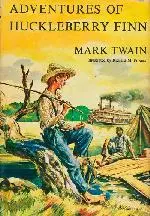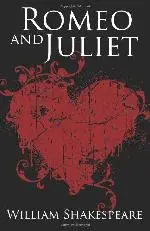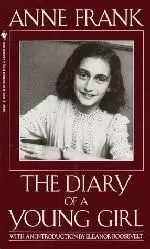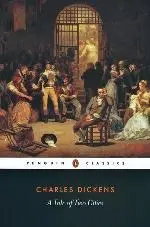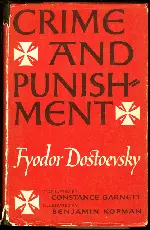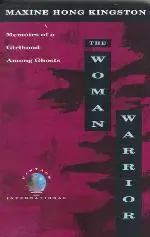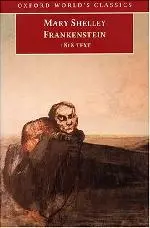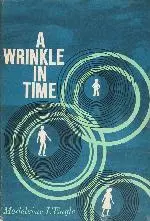image courtesy Schplook / flikr.com
It is now mid-September, which means many of you LitReactor readers are back in school, be it as students or as faculty. As for me, I haven't been in school in quite some time. I graduated college in 2005 and I knew even back then I was never cut out to be a teacher. So in terms of the required reading that I was assigned back in junior high and high school, I am quite removed from all of that. Poking around the internet, however, I learned that not a lot has changed since I was a solitary little punk-ass fifteen-year-old with a chip on my shoulder, low those twenty years ago. Many of the same texts I had to read back in those days are still getting assigned to young readers today. Some of them I had revisited either in college literature courses, or on my own either in college or shortly thereafter, but most I hadn't even thought about since those supposedly wild and crazy "best days of my life" that were really nothing more than a lot of listening to music most of my friends didn't like all that much, driving around aimlessly, and LOTS of underage drinking.
So journey with me, if you will, back through some of the required reading still hanging around syllabuses today. Just how good are they for young adults to consume? Will people of that age actually pick up on the themes being presented? Are some of the themes utter poppycock that nobody should read? Let's find out...
![]() 1. 'The Great Gatsby' by F. Scott Fitzgerald
1. 'The Great Gatsby' by F. Scott Fitzgerald
Based on where you go to school, this is probably the only assigned text told by a disaffected young man that deals with the hollowness of high society (and despite what a certain filmmaker would have you believe, it is NOT a tragic love story). I revisited this one a few years ago, and still found it to be a good novel, but also a bit laborious to read, given that I'm not quite so pissed off and disaffected myself anymore. Yeah, rich people kinda suck sometimes, but there are good rich people too, and they certainly don't go out of their way to blend into a society that doesn't actually want them, nor die tragically and immediately fade from the minds of those who proclaimed to love them. Plus, it's fairly apparent Nick was in love with Gatsby, and maybe that's the real reason to read Fitzgerald's most famous work these days, as an example of deeply buried sexual desire and misplaced anger.
![]() 2. 'The Scarlet Letter' by Nathaniel Hawthorne
2. 'The Scarlet Letter' by Nathaniel Hawthorne
While many of my fellow students saw this novel as a tale of sinners who tempt God's law and fail, I saw right through all of that nonsense. Hester Prynne and Arthur Dimmesdale are tragic figures in the classic sense of the word, for the shear fact that they ultimately believe in God's law as the Puritans defined it (as many still do today), and they allow this false sense of guilt toward their love and "illicit" affair to burden them. If you don't believe me, just reread that pivotal scene in the forest, where Dimmesdale and Hester, away from the trappings of their God and society, cast away all notions of "should" and embrace what they want. It is only when they must go back into society that they re-affix their sins to themselves (quite literally in Hester's case).
![]() 3. 'The Adventures of Huckleberry Finn' by Mark Twain
3. 'The Adventures of Huckleberry Finn' by Mark Twain
There's still a debate about whether or not this book is racist. On the one hand, it features nonchalant uses of the "N' word and relies on gross stereotypes of African-Americans in its depiction of Jim. On the other hand, for a novel first published in 1884, it's probably the most progressive tome on slavery written by a white dude at that time, especially since most of the text is aimed squarely at exposing the hypocrisy of the slave trade by drawing comparisons between the actions of Huck, a free white boy, and Jim, an enslaved black man. Yes, it has its flaws, but it is an impressive piece of writing that is far, far more aligned with the moral right than something like The Birth of a Nation, D.W. Griffith's unabashedly racist film that is supposedly a feat of contemporary filmmaking unseen at the time, even though that's actually not true at all—a film that is regularly screened in Film Studies 101, by the way. If we can make excuses for Griffith, we can do so for Twain as well. This isn't to say we should blindly ignore or necessarily excuse the moments of racism appearing in an anti-racism text; rather, it's simply something we have to accept as a product of its time, and at the very least, Twain is trying (which is a lot more than we can say for Griffith).
![]() 4. 'Romeo and Juliet' by William Shakespeare
4. 'Romeo and Juliet' by William Shakespeare
This is perhaps the first exposure to Shakespeare most young adults get, which is a shame because it's decidedly the Bard's worst play. Probably the age of the protagonists and the simple "tragic love story" plot has made it the defacto middle grade and high school Shakespeare primer, but that's a huge problem because, 1.) the plot isn't actually a tragic love story, and 2.) Romeo and Juliet are a couple of idiots. Their plight isn't sad, really—they're behaving about like you'd expect a couple of teenagers to behave, i.e., melodramatically. "Oh, woe is me, my one true love is dead, so I want to be dead too!" NO! YOU'RE LIKE FIFTEEN! You don't know what love actually is! (Old man card, punched.) The real tragic story of Romeo and Juliet is situated with the parents of the feuding family—they were so caught up hating each other for no real reason that they both ended up losing their children. The message of the play is directed toward parents, or anyone who holds on to old feuds "just because." Don't do it. Pay more attention to your kids. Make sure they're not acting like melodramatic morons.
![]() 5. 'The Diary of a Young Girl' by Anne Frank
5. 'The Diary of a Young Girl' by Anne Frank
Often simply called The Diary of Anne Frank, this is one of the best Holocaust-related titles for young adults to read, primarily because it's written by a girl about the same age as junior high / high school students. But no matter the age of the reader, I can't think of a book that so adeptly humanizes the prolonged nightmare of Nazism as this one. We see the horror not from an outside observer, not from a historian or a contemporary political figure, but from the point of view of a regular girl, no different from any other girl one might encounter on the street. Definitely a must-read—especially now that much of the original text involving Anne's thoughts on her sexuality and problems with her mother, previously censored by pearl-clutchers, has been restored.
![]() 6. 'A Tale of Two Cities' by Charles Dickens
6. 'A Tale of Two Cities' by Charles Dickens
Best of times, worst of times, one city is up, the other is down, French people really love their beheadings, the English are more civilized than that, etc., etc., etc. And two dudes look exactly alike and they swap places at one point. Honestly, I haven't reread this one since high school. I was bored with it then, and I'm bored just thinking about it now. Make a case otherwise in the comments, but I really did feel the novel attempts to suggest the English would never stoop so low as to blindly execute a bunch of people simply because they belong to a certain class, which is so patently untrue it makes my blood pressure boil.
Sorry, Chuck. I dig A Christmas Carol though. Genuinely.
![]() 7. 'Crime and Punishment' by Fyodor Dostoevsky
7. 'Crime and Punishment' by Fyodor Dostoevsky
The first half, which explores Raskolnikov's descent into violent sociopathy, is brilliant and deserving of every accolade the novel as a whole receives. But the second half of Dostoevsky's book merely basks in its predecessor's limelight. This is the half that deals with Raskolnikov's burning guilt over the murder he committed, and it rings as patently false. This isn't to say that it's impossible for someone to feel remorse after committing a violent crime, but rather that it seems impossible Raskolnikov could feel remorse. To me, the first half (Crime, we can call it) depicts a man who is simply embracing an aspect of himself that was always inherent in his design: he is a murderer, his wires are crossed in this way, so that is what he becomes. Punishment just feels tacked on, a means of justifying the previous "immorality" by showing the ramifications of his vile deed. The Raskolnikov we got to know in Crime wouldn't feel a thing after carrying out the murder—or rather, he wouldn't feel anything negative about it. Likely, he would feel good, and he'd only crave it all the more.
In this way, I suggest teachers assign this novel as a novella simply titled Crime, and skip all the moral platitudes that follow altogether. Or better still, just have the students read The Double.
![]() 8. 'The Woman Warrior' by Maxine Hong Kingston
8. 'The Woman Warrior' by Maxine Hong Kingston
I remember the majority of my sophomore (or was it junior?) English class hating this book. I also remember enjoying it quite a bit, and feeling all the more separated from my peers, and being a-okay with that (remember: pissed off and disaffected). There's just so much going for this book, which blends nonfiction memoir with Chinese folklore tales in this seamless, almost dreamlike way. It also contains a non-Disney-fied recounting of the Mulan legend. Plus, it's a solid way to subtly introduce feminism to younger readers, which is especially important now that feminism is the new cultural "F" word. What's not to like?
![]() 9. 'Frankenstein' by Mary Shelley
9. 'Frankenstein' by Mary Shelley
Audiences often bemoan that the Frankenstein narrative just isn't scary anymore, to which I always respond, "Have you read the book lately?" Shelley knows how to get under your skin in a way film adaptations can't, or at least is difficult for them hese days, given how saturated the Creation has become in popular culture. Even in really good interpretations of Shelley's novel—like that featured in the Showtime series Penny Dreadful—the "monster" comes across as petulant and egregiously tormented (though certainly dangerous given his unpredictability). However, if you want a modern-day Prometheus that might give you nightmares, turn to the original text.
![]() 10. 'A Wrinkle in Time' by Madeleine L'Engle
10. 'A Wrinkle in Time' by Madeleine L'Engle
This novel simultaneously manages to piss off conservative Christians and really left-of-center, non-religious liberals, so it must be doing something right. Yeah, L'Engle was a Christian, and a lot of those ideals are very much present in the text. However, L'Engle was a liberal Christian, and the presence of such ideals, while perhaps a little heavy-handed, don't drag the book into cuckoo-ville, which causes conservatives to complain it isn't Christian enough, while those on the opposite end of the spectrum complain it's way too preachy to be taught in schools. To both camps, I say: get over it. As long as a plethora of ideas are being represented in schools, there's no problem teaching a novel that's decidedly Christian in nature (like the Harry Potter series, for instance); and if you think a plethora of ideas should not be represented—that even a heavily Christian-themed novel isn't Christian enough to be taught in schools—well...it sounds like you have a happy, stress-free life void of anger over silly things or a proclivity to meddle in matters you clearly don't understand. Keep doing what you're doing.
Besides, at the end of the day, among other reasons, it's important to teach A Wrinkle Time because it shows—as Frankenstein and The Woman Warrior do, and as Poe's "The Raven" does—that genre fiction has the same literary merit as realistic lit-fic. Really, that's the biggest takeaway I got out of my junior high and high school, that I was learning just as much, if not more, about the world from the likes of Shelley, Kingston, L'Engle, and Poe, as well as Stephen King, Clive Barker, and William S. Burroughs.
So to the teachers of the world, I say ASSIGN MORE GENRE LIT. And to the students, I say, IF IT ISN'T ASSIGNED TO YOU, READ IT ANYWAY, ON YOUR OWN TIME (or, I say, at least read what is assigned to you and attempt to understand it on some level, for the love of God).

About the author
Christopher Shultz writes plays and fiction. His works have appeared at The Inkwell Theatre's Playwrights' Night, and in Pseudopod, Unnerving Magazine, Apex Magazine, freeze frame flash fiction and Grievous Angel, among other places. He has also contributed columns on books and film at LitReactor, The Cinematropolis, and Tor.com. Christopher currently lives in Oklahoma City. More info at christophershultz.com
